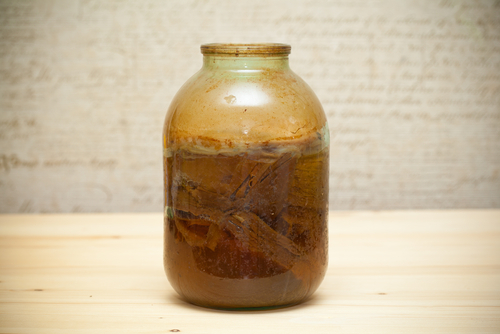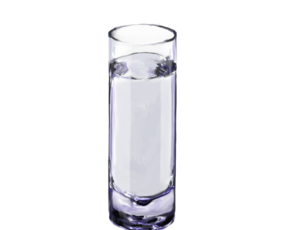Is Kombucha Bad For You?
Also Known As: kombucha tea
Short answer
Due to lack of scientific evidence, Kombucha tea cannot be deemed good or bad for your health. However, many consume the beverage worldwide and seem to be just fine - even having reported various health benefits.
Recommended Alternative
'N' stands for neutral. Things placed into this category are (a) neither good nor bad for you, or (b) lack the necessary evidence to reach any conclusions.
View Full Grading System
Category 'A'
Very healthy and numerous health benefits. Side effects are rare. Things rated an 'A+' are typically necessary for survival (for example, water).
Very healthy and numerous health benefits. A few harmful qualities may be associated, but only under certain circumstances such as an allergic reaction.
Very healthy and numerous health benefits. Harmful qualities may be associated, but aren't usually serious.
It is important to note that even the best things in life can become bad in immoderate amounts. So, although something may be rated an 'A+', overconsumption/overdoing can bring unwanted effects.
Category 'B'
Very beneficial to your health. Things rated a 'B+' may have a few harmful qualities to pay attention to.
Overall beneficial to your health. Things rated a 'B' may have some harmful qualities to pay attention to.
More beneficial to your health than not. However, harmful qualities are most likely associated and shouldn't be overlooked.
The main difference between category 'A' and category 'B' is the harmful qualities typically present in 'B' items. Serious side effects are usually uncommon, but are still possible and should be taken note of.
Category 'C'
Both beneficial and harmful qualities associated. Things rated a 'C+' are typically a bit more on the beneficial side. Still, moderation is important.
A fairly even ratio of beneficial and harmful qualities. Moderation is important. Very general topics that can lean towards both sides of the spectrum will be placed here as well. Rice, for example, can be good or bad depending on the type.
More harmful than beneficial. Side effects are common, especially when consumed/done excessively. Moderation is very important.
Category 'C' usually denotes to both good and bad qualities. When it comes to this category, it is important to keep this word in mind: moderation.
Category 'D'
Harmful to your health. Although benefits may be associated, the bad most likely outweighs the good. Moderation is very important.
Harmful to your health. A few benefits may be associated, but the bad outweighs the good. Moderation is extremely important.
Harmful to your health. Very few, if any, benefits are present. Things in this category should be avoided as much as possible.
Category 'D' is typically for things that are more harmful than beneficial. While consuming/doing something unhealthy once in a blue moon shouldn't hurt, we definitely recommend eliminating 'D' items as a regular part of your routine/diet.
Category 'F'
Category 'F' is for things that fail to bring anything beneficial to the table, and are very harmful to your health. We recommend completely avoiding anything in this category. Long-term side effects of 'F' items are usually very serious.
Category 'N'
'N' stands for neutral. Things placed into this category are generally (a) neither good nor bad for you, or (b) lack the necessary evidence to reach any conclusions.
Long answer
Due to limited research, Kombucha tea seems to fall within that proverbial “grey area” in regard to either being bad for your health or the next miracle cure fad. Since Kombucha tea consists of a colony of bacteria and yeast that is fermented for up to 10 days, there’s an elevated risk of contamination that can be caused from being exposed to spores in the air during the brewing process. In the event a contaminated culture is consumed within tea, it could be lethal according to at least one supplier of exotic mushrooms who studied the pharmaceutical properties of Kombucha.
On the other hand, claims have been made by individuals drinking Kombucha tea that it has improved their eyesight, carpal tunnel symptoms, and cured psoriasis. Some even refer to Kombucha as a "magical elixir" in which can prevent cancer, strengthen the immune system, and promote digestion. Furthermore, some turn to Kombucha tea as an external pain reliever when applied directly to the skin.
Since the jury is still out waiting for evidence regarding these health claims, and several cases of adverse effects have been reported, many health-care providers advise not consuming more than 4 ounces daily of store-bought pasteurized Kombucha tea. Pregnant women, children, the elderly, or anyone with a weakened immune system should avoid the beverage entirely.
Possible short-term side effects
- nausea
-
diarrhea
-
infection
-
possible allergic reaction
Possible long-term side effects
Ingredients to be aware of
Benefits
- possible benefits:
-
strengthened immunity
-
cancer prevention
-
improved digestion
-
improved liver function
-
improved memory retention
-
fight pms symptoms
-
fight joint pain
Our Wellness Pick
(what is this?)
GT'S Gingerade Kombucha
- Organic raw kombucha
- Rich in probiotics
- Ginger infused
- Promotes digestion
- 12 bottles total
Learn More!
Please turn your Ad Blocker off to see this content. Thank you!
Thank you for your feedback!
Written by Rachel Adams
Published on: 12-28-2015
Last updated: 12-15-2023
Thank you for your feedback!
Written by Rachel Adams
Published on: 12-28-2015
Last updated: 12-15-2023

 Approved by
Approved by 















